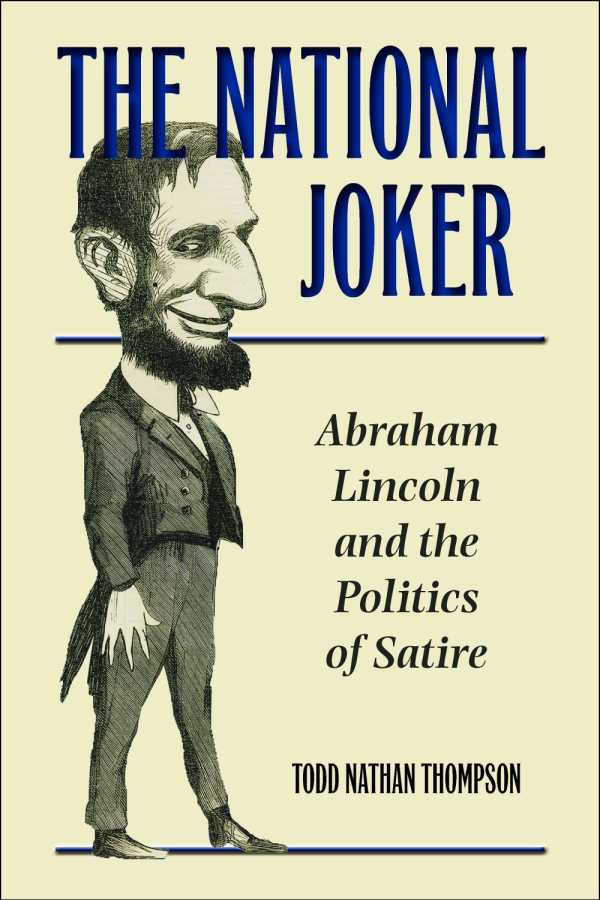The National Joker
Abraham Lincoln and the Politics of Satire
The National Joker is a fascinating look at the savvy way Abraham Lincoln used mid-nineteenth-century social media.
Before he became part of the Mount Rushmore quartet and one of America’s most revered presidents, Abraham Lincoln was just a man trying to get elected. It may seem like he loped humbly into public office while splitting rails and telling tales, but according to Todd Nathan Thompson’s The National Joker: Abraham Lincoln and the Politics of Satire, Lincoln was quite savvy at creating his own legend.
Thompson, associate professor of English at Pennsylvania’s Indiana University, follows Lincoln’s famed journey from a log cabin to the White House. Honest Abe knew his strengths and weaknesses and managed to use both skilfully. He laughed at his tall, lanky frame and less-than-perfect features; he modestly boasted about being self-taught and unsophisticated and, in doing so, deflected criticism from opposing parties. Prior to the eloquence of the Gettysburg Address, Lincoln’s speeches were peppered with jokes and anecdotes that made the presidential hopeful come across as distinctly intelligent, yet still able to connect with the common man. Even in matters of style, Lincoln often favored a rumpled look.
The National Joker includes numerous examples of political cartoons and literature, illustrating how Lincoln was a subject to be praised and vilified. Cartoonists and pamphleteers who supported Lincoln were apt to play up his rangy build and folksy, forthright attitude. On the other side of the generally pro-slavery fence, cartoonists presented Lincoln as divisive or arrogantly naive, changing the good-natured joker image into a glib court jester.
Those who follow the cult of Lincoln—or even those who don’t—will surely find The National Joker to be a fascinating look at mid-nineteenth-century social media. “Abraham Africanus the First,” a chapter detailing Civil War portrayals of Lincoln, features scathing cartoons and writings that depicted the president as Satan or a vampire, and even questioned his race. By then the national joker had become the leader of a bitterly broken country, and as Thompson notes, Lincoln realized the need to make his humor more “humanely invested” and compassionate as he began his second, fateful term.
Reviewed by
Meg Nola
Disclosure: This article is not an endorsement, but a review. The publisher of this book provided free copies of the book to have their book reviewed by a professional reviewer. No fee was paid by the publisher for this review. Foreword Reviews only recommends books that we love. Foreword Magazine, Inc. is disclosing this in accordance with the Federal Trade Commission’s 16 CFR, Part 255.

